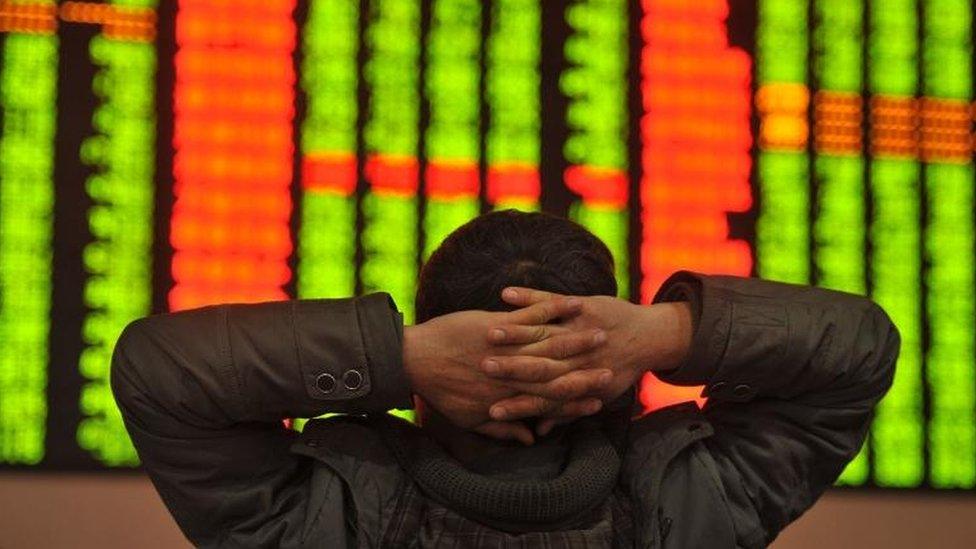China share trading halted after 7% plunge
- Published

Trading on China's stock markets has been suspended after the market dramatically plunged and triggered a new system meant to limit volatility.
The blue-chip CSI 300 Index dropped 7% while the benchmark Shanghai Composite index fell 6.9%.
The technology-heavy Shenzhen Composite was the worst performer and fell by more than 8%.
Trading had been halted earlier in the day for 15 minutes after the stock market fell by 5%.
But shares continued to fall, leading regulators to end trading early.
Under China's new circuit-breaker mechanism, moves of 7% from the previous session's close trigger a trading suspension for the day.
The measures were introduced in early December after the stock market's turbulent sell-off over the summer. They came into effect for the first time on Monday.
One factor behind the stock market falls was a manufacturing survey that pointed to more bad news for the Chinese economy.
The Caixin/Markit purchasing managers' index (PMI) slipped to 48.2 in December, marking the 10th consecutive month of shrinking factory activity in the sector.
A reading below 50 suggests a contraction in the sector, while anything above 50 suggests growth.
The private PMI survey, which focuses more on small and medium-sized businesses, came after an official survey on Friday, which looked at larger companies, suggested a fifth month of shrinking factory activity.
In Hong Kong, the Hang Seng index closed down 2.7% at 21,327.12.
China's stock market falls on Monday point to "volatile trading for the rest of the year" according to the “óĻó“«Ć½'s Karishma Vaswani.
"Retail investors in the Chinese stock market are often driven by sentiment and tend to follow the crowd. When they hear of some bad news from brokers or their friends, and other people start selling - they start selling too."
Rest of Asia lower
Shares in the rest of Asia followed China lower. Japan's benchmark Nikkei 225 index closed 3.1% lower at 18,450.98 as a stronger yen weighed on shares of major exporters.
The market was also catching up with last week's declines in the US, after being closed for the past two sessions.
Australia's S&P/ASX 200 index closed down 0.5% at 5,270.50, while South Korea's Kospi index finished down 2.2% at 1,918.76.
A jump in oil prices boosted Australia's energy sector with shares of Woodside Petroleum up 3%.
Brent crude gained 3%, rising as high as $38.40 a barrel, after Saudi Arabia's execution of a prominent Shia Muslim cleric ignited tensions in the region, raising concerns among investors about oil supplies.
- Published4 January 2016
- Published4 January 2016